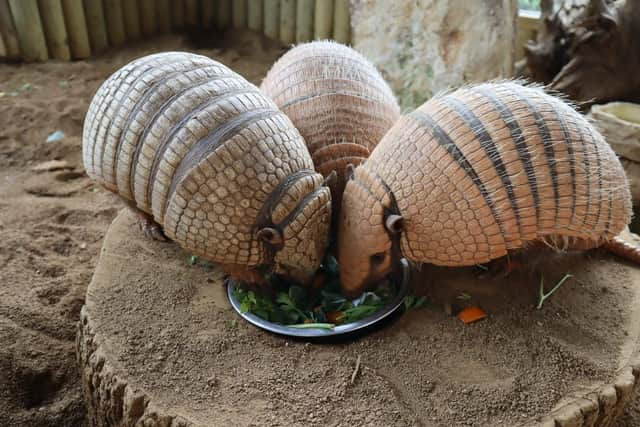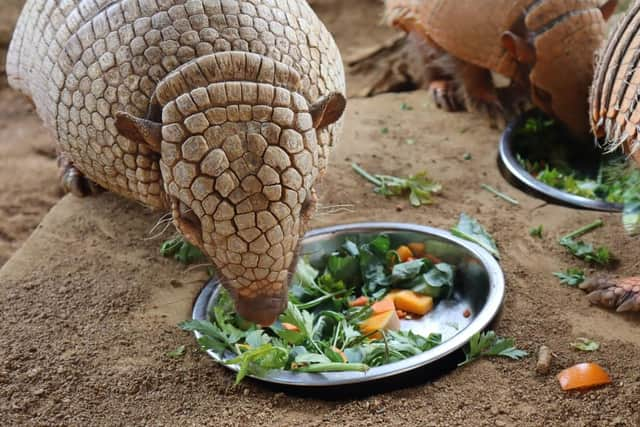Armadillo ‘bombshell’ arrives at East Sussex zoo
and live on Freeview channel 276
A Drusillas Park spokesperson said: “Love Island may be over but there are definite Casa Amor vibes over at Drusillas Park near Alfriston this week.
"A new romantic interest has arrived in the shape of a yellow armadillo stud to join current armadillos Patsy and Eddie.
Advertisement
Hide AdAdvertisement
Hide Ad"It’s hoped the newly introduced trio will get on well, heads will turn, and eventually become a breeding group.”


Two experienced keepers from the zoo embarked on a 766-mile road trip to collect the new six-banded armadillo male.
The new male is so much larger than the park’s resident females he’s quickly been given the name ‘Tank’ by the zoo’s team.
Resident armadillos Patsy and Eddie arrived at the zoo more than a year ago and have spent a while finding the right mate to join them.
Advertisement
Hide AdAdvertisement
Hide AdThe spokesperson added: “Initial introductions went brilliantly and so the trio are now happily snuffling and scooting around the enclosure together, and even all share food from one bowl.”


Keeper Amelia Jones said: “It’s always a tentative time introducing new animals to each other, but our girls are so confident that it didn’t phase them at all having a new friend - and we’ve definitely already seen some flirting going on so I think they don’t mind at all.
“We’ve got so used to Patsy and Eddie, who are still quite young ladies, that when I collected the new male from Northumberland Zoo it was quite a surprise how much bigger he seemed. Some of the team started jokingly calling him the ‘Tank’ and it’s stuck.
"He’s a real sweetie though and seems a little calmer than our two boisterous girls so I think he’s going to be a good influence on them.”
Advertisement
Hide AdAdvertisement
Hide AdThe park said six-banded armadillos are found in the wild across much of South America, in grasslands, rainforests and plantations.
The spokesperson added: “Many of the animals at Drusillas are involved in breeding programmes, often monitored by studbook keepers, to ensure the future survival of the species.
"Drusillas has never had a breeding group of armadillos so the team are all very excited about the prospect of a new species that could be born at the zoo.”